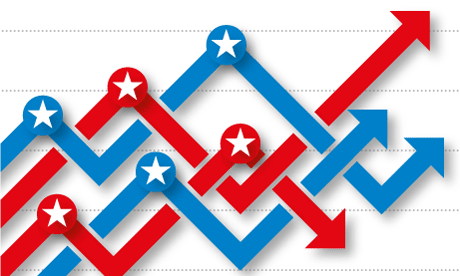Insights on markets, emergent trends, history, innovation, risk management, global economics, strategy, policy, and other topics that catch our attention. Inspired by ongoing research, conversations and events. Written and edited by Osbon Capital Management and published every Thursday morning.
"*" indicates required fields
2024 will bring more positive novel surprises. New years always do. In 2023, it was the dramatic acceleration in AI, which touches nearly every industry, and the early stages of an answer to the obesity epidemic with GLP-1s. Here is a list of what’s on our minds going into 2024.
Feeling Investment Grumpy? It’s OK.
The popular press and social media are perfectly designed to tell us why we should be deeply scared about the future. Gloom and despair lurk around every corner. According to these folks we are not just talking about a wall of worry; there’s a Grand Canyon of disaster waiting for us just ahead. It’s easy to feel uneasy. If that’s where you are, you’re not alone. But it doesn’t have to be that way.
Election Uncertainty: What’s It Mean For Me?
On Tuesday, November 8th we’ll finally know who the 45th President of the United States will be. What a campaign rollercoaster it’s been. It’s been so contentious and unpredictable, many investors are wondering what it means for their financial futures. Here are some things to consider as the last 40 days of the campaign unfold.
The New Money Market Rule, and Me
Every investor owns money markets, but are they the right ones? They’re not all the same, and with a new SEC Rule going into effect on October 14th, choosing the wrong one could put your money at risk. What’s the rule and what’s it mean for you? Be prepared, not surprised. Here’s how:
My 8 Step Financial Routine
We all want to be responsible and efficient when it comes to finances. But how? Where should you start and what should be done? Instead of starting from scratch, I recommend you follow an easy routine. Take the 8 small steps below each month. They won’t take you more than 10-30 minutes and will pay dividends well into the future.
The Kids and Your Money, Revisited
We first wrote about kids and money in May 2014. Here’s an updated version, circa 2016, sparked by real client conversations. What are parents talking about now? Education – price and value – seem to be top of mind, along with some other topics that may be just what you are thinking about.
Would You Buy Your Own Home Now?
It was an interesting question from a client: would you buy the home you live in right now? And could you? Many people cannot afford today to buy the home they currently live in. That’s true mainly for older people who bought their homes 10, 20, 30 years ago, but it’s also true for younger owners in some areas. Prices are way up in many markets and even those whose incomes have risen a lot might not want to buy that $2m home they paid $400k for back in the day. Is your house a good deal?
Am I Risk Tolerant?
We see advisors and investment firms do it all the time. They ask you what your risk tolerance is, possibly on a scale of 1-5 or with words like conservative and aggressive. It’s tempting to condense the investment process down to a series of targeted multiple-choice questions. But does that really work? Let’s take a deeper look.
Six Reasons To Call Your Advisor
When should you call your wealth advisor? Whenever you want. Your advisor should always be available and ready to answer questions, pose new forward-looking ideas, or simply discuss what’s on your mind. Here are six situations where you should definitely pick up the phone.
Finding Others Who Really Care About My Money
Lots of people are interested in your money. The bank likes your deposit. The waiter appreciates your tip. The carpenter values your payment. But who really cares about your money, besides you and your family? When you get to that point of engaging professionals with your money, what should you look for and how can you tell how much they care?











